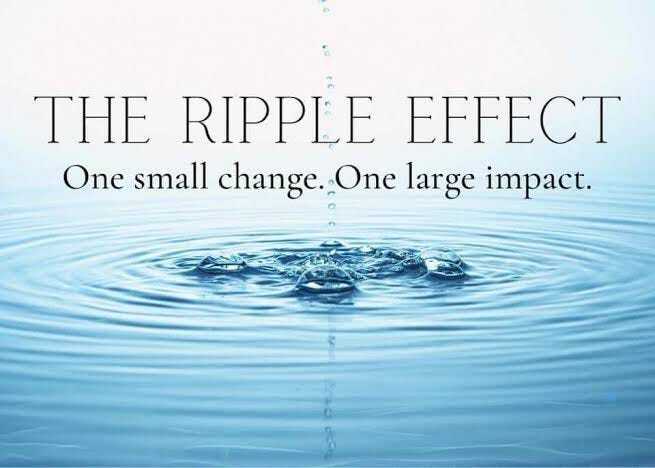The Grace of Waiting: The Grace of Letting Go
Scripture Reading:
Ephesians 2:8-9
"For by grace you have been saved through faith. And this is not your own doing; it is the gift of God, not a result of works, so that no one may boast."
Grace is the heartbeat of the Christian faith, a divine, unearned love that flows from God’s heart to ours, despite our flaws and failures.
In religious contexts, like Christianity, grace is God’s unearned love or mercy, such as granting salvation despite our human flaws. Like a parent forgiving a child for a serious mistake, showing love despite the hurt, without holding a grudge.
Spiritual grace refers to divine or transcendent favor, love, or empowerment, often unearned and freely given. Grace is a no questions asked welcoming love. This is why Grace is sovereign and transformative, overcoming human resistance to bring about salvation.
God’s sustaining grace ensures the elect remain in faith, sealed by the Holy Spirit. And Grace is always a gift, not earned by works (Ephesians 2:8-9). And God is always the source and initiator of grace, whether through election, atonement, or empowerment.
Yet, there is another dimension of grace we often overlook: the grace of waiting, and the grace of letting go. God, in His infinite love, extends grace even to those who wander far from Him, allowing sinners to walk their own paths, even apart from salvation. This waiting is not passive indifference but a profound act of divine patience, rooted in God’s desire for all to come to repentance.
2 Peter 3:9
"The Lord is not slow to fulfill his promise as some count slowness, but is patient toward you, not wishing that any should perish, but that all should reach repentance."
It is grace that restrains judgment, giving space for the human heart to turn back to its Creator. Consider the parable of the prodigal son (Luke 15:11-32). The father did not chase his son into the far-off country or force his return. Instead, he waited, watching the horizon with a heart full of love. When the son finally returned, broken and humbled, the father’s grace was ready, not with condemnation, but with a robe, a ring, and a feast.
We are called to pursue holiness. We are called to bring holiness to completion in the fear of God. We are called to put off our old self putting on the new self in the image of God. Knowing how to control our own self in the Grace of God. Sometimes grace is controlling yourself by removing yourself.
The father’s love in the prodigal son’s story was waiting for Grace to do it’s work. This waiting was itself an expression of grace, allowing the son to experience the consequences of his choices and the freedom to return. Grace is the freedom to return and the freedom to not return.
In our own lives, we see this grace at work. Perhaps you’ve watched a loved one stray, longing for their return to faith. Or maybe you’ve been the wanderer, given time by a patient God to find your way back. God’s grace in waiting does not mean He abandons the sinner. Waiting Grace reflects the father’s trust in the transformative power of His Spirit to draw hearts home. It’s a grace that respects human freedom while never ceasing to call us back.
We live in a world that demands instant results, yet God’s timing often defies our urgency. This aspect of grace challenges us. We want the father to step-up, to be a man, to go and find the boy and to make him see the error of his ways, or at least be there to maybe prevent new errors. But we miss what Grace does.
We get these things backwards sometimes. God does not welcome us and receive us because we’ve done the holiness stuff. We do the holiness stuff as a result of God making us holy. The prodigals father didn’t run to the pig farm and jump in the pig sty where the son was working, and the son didn’t get cleaned up before returning to his father’s home. The boy showed up covered in pig shit and the father received him in love, dressed him in clean garments, put rings on his fingers and bells on his toes and grilled up an awesome steak for him.
The father saw the son coming, ran to him, and set him apart. It was a gift from God. The son went there KNOWING that the father would do this, because the father doesn’t give the free gift because we pursue it, it begins with God. The son pursued it because the father was giving it already.
So, can you see it?
Grace already existed even as the father waited for the son to return. It was already there waiting. The son didn’t create it, it was already given. No it wasn’t on the road searching for the son and silently approving of his rebellion as it waited. It waited at home, which was the draw. The son knows where it is. That is God’s pursuit. Not that he is roaming the highways and byways searching, but that he has already extended that grace from home. What hasn’t happened yet was the son’s realization of this. What’s delaying Grace is the rebellion. What activates and actuates the Grace in the son’s life is his coming to an understanding of the Grace that has already been established.
We are called to not give the devil a foothold in our lives. Not in our desires or our attitudes. We're called to renew our minds in righteousness and holiness, honoring our parents, loving God, keeping his commandments, being faithful to never practice immorality. We are continually called to these things. So, this gift is given to us, this holiness of being set apart is before us in that Grace has given that gift to us. Our work is to receive it. The holiness has been handled already, by God, and it’s waiting for you to come to terms with it and receive it.
If you helped God to achieve this then you’d share in His glory. He blessed us. He chose us. He predestined us. He lavished us in it. He made it known to us. GOD DID THAT! To his own glory. HIS GLORY! He orchestrated it. The father out of love for his son gives a nation of people to his son. Out of His love he did that.
How are unholy people going to make themselves holy?
The simple answer is they're not. They're not even looking for it. It's alien to them. They're not even thinking about it.
There are two different kinds of people in the world. Those who hear God's voice and those who don't. For those who seem far from God, this truth is both humbling and hopeful. Unholy people don’t make themselves holy because they can’t, and they don’t even want to. The prodigal son WANTED it. He remembered his father's house. God’s patience was waiting, desiring that all come to repentance. His Spirit is drawing the lost, stirring up the awareness of His grace that's already extended, just as the prodigal’s hunger led him to remember his father’s house. Our role, then, is not to manufacture holiness but to receive it. For believers, this means continually surrendering to the Grace that has already set us apart, putting off the old self and living out the new, created in God’s image.
The son was already loved and set apart by the Father. The son didn't become the father's son because the son did something. The son has already been adopted into the father's love. The son did nothing to earn that. He was born with that love already extended and expressed throughout his entire life. Even right up to and following the moment that the son disrespected his father, DEMANDING that he give him his inheritance. The father that day handed over his son's inheritance to him. He publicly handed over his inheritance which released him from all responsibility for that son. As far as the son was concerned or the world was concerned, the father was dead. The son killed his father in that moment. The son took his inheritance from the father and made it his own responsibility now. The father, at least on the books, was no longer his father. He handed over all rights and claims to his son. His son demanded it and in his Grace he gave it to him.
The son didn’t earn his place in the father’s love; he was born into it, set apart by Grace from the start. In a shocking act of rebellion, he demanded his inheritance, effectively declaring his father dead. In that moment, he severed the relationship, claiming independence and taking full responsibility for himself. Legally and socially, the father relinquished all rights and claims, handing over the inheritance as the son insisted. This was NOT approval. It was Grace. It was a painful act of love that honored the son’s freedom, even as it broke the father’s heart.
I understand this pain and what the father went through in that moment. I stood before a packed courtroom, and before a belligerent judge, and I handed over my rights to my elder son, my namesake, my first born son. I'll never get the image of that judge or his voice when he shouted out for all to hear, "DO YOU UNDERSTAND SIR?" Do you understand he asked me. Do I understand that I had a choice, give my son his emancipation or take him home against his will. And then deal with the consequences of what that would mean in the days, months, and years to come.
I understand. I understand what the father felt that day. And I've been understanding for decades since. It's never left my mind or my heart. It's ever present in all I think about when I think about my family. My heart has never healed from that hurt. And it looks like it never will. I can play over and over in my mind a whole bunch of what if's, but that fact of the matter is, like the prodigal's dad, I handed over his inheritance. As far as the courts and the world are concerned, legally speaking, I have no son anymore in him.
The word "prodigal" means recklessly extravagant, wasteful, or lavish, often in a way that leads to squandering resources. The resource of my fatherhood was taken from me and I lost it forever that day. And that has reflected in everything throughout our relationship ever since. I don't think it can ever truly be restored if it can't be understood in how important that breaking of the relationship was.
Like in the parable, the story isn't over. I know this. The prodigal's return was not about erasing the past but embracing the Grace that was always there. For me, living out this Grace means holding space for my son, trusting in God's timing, and doing my best with what I have been given to reflect the Father's love in my heart. In the latter I fail always. Healing may never be full restoration, but God's Grace can redeem even the deepest loses.
Reflection:
How has the pain of letting go shaped your understanding of God’s grace?
In what ways can we entrust our son’s and daughter's journeys to God’s patient, waiting love?
Prayer:
Heavenly Father, in you alone I place all my trust through the love of your Son Jesus and in the power of the Holy Spirit. You know the pain of a severed bond, the weight of a squandered love. Thank You for Your grace that waits and restores. Hold my son in Your mercy, and mend the wounds of my heart. Help me trust Your work in our story, reflecting Your love even in loss. Amen.



















